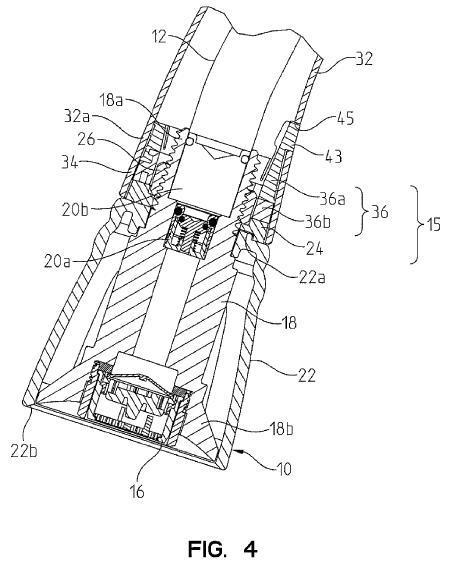 Indianapolis, IN – Patent lawyers for Masco Corporation of Indiana of Indianapolis, IN filed a patent infringement suit alleging Sir Faucet, LLC of Toledo, OH infringed Patent No. 7,753,079, MAGNETIC COUPLING FOR SPRAYHEADS, and Patent No. 7,909,061, MAGNETIC COUPLING FOR SPRAYHEADS, which have been issued by the US Patent Office. Masco does business under the name Delta, and is a fairly frequent litigant in patent infringement lawsuits. Another Masco lawsuit in Indiana is discussed on this site here. Also, Masco was recently sued for patent infringement by one of its major competitors, Moen. That complaint is here. Given that Moen and Sir Faucet suits were filed at about the same time, and that Sir Faucet is located in Northern Ohio where Moen is located, there may be some connection between these two suits.
Indianapolis, IN – Patent lawyers for Masco Corporation of Indiana of Indianapolis, IN filed a patent infringement suit alleging Sir Faucet, LLC of Toledo, OH infringed Patent No. 7,753,079, MAGNETIC COUPLING FOR SPRAYHEADS, and Patent No. 7,909,061, MAGNETIC COUPLING FOR SPRAYHEADS, which have been issued by the US Patent Office. Masco does business under the name Delta, and is a fairly frequent litigant in patent infringement lawsuits. Another Masco lawsuit in Indiana is discussed on this site here. Also, Masco was recently sued for patent infringement by one of its major competitors, Moen. That complaint is here. Given that Moen and Sir Faucet suits were filed at about the same time, and that Sir Faucet is located in Northern Ohio where Moen is located, there may be some connection between these two suits.
While the Indiana suit contains a boilerplate allegation “upon information and belief” that Sir Faucet is “making using, importing, selling, or offering for sale in the United States, including the Southern District of Indiana, products and/or services embodying the patent inventions,” it lacks the type of supporting detail that may be required to prove personal jurisdiction. The complaint also alleges in paragraph 12 that the case is “exceptional,” but states no fact to support this conclusion. If a court finds a case to be “exceptional,” it may award a prevailing party treble damages and attorney’s fees.
Practice Tip: If a defendant is selling an infringing product in the jurisdiction where a plaintiff desires to file a suit, it is helpful to make a representative purchase in that jurisdiction, and reference the sale in the Complaint. This may thwart an attempt by the defendant to have the case dismissed or transferred to the defendant’s preferred venue.
This case has been assigned to Judge Sarah Evans Barker and Magistrate Judge Debra McVicker Lynch in the Southern District of Indiana, and assigned case no. 1:11-cv-00404-SEB-DML.
Continue reading




